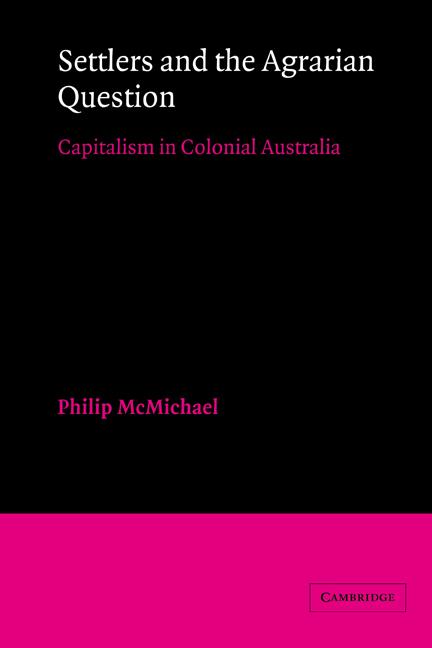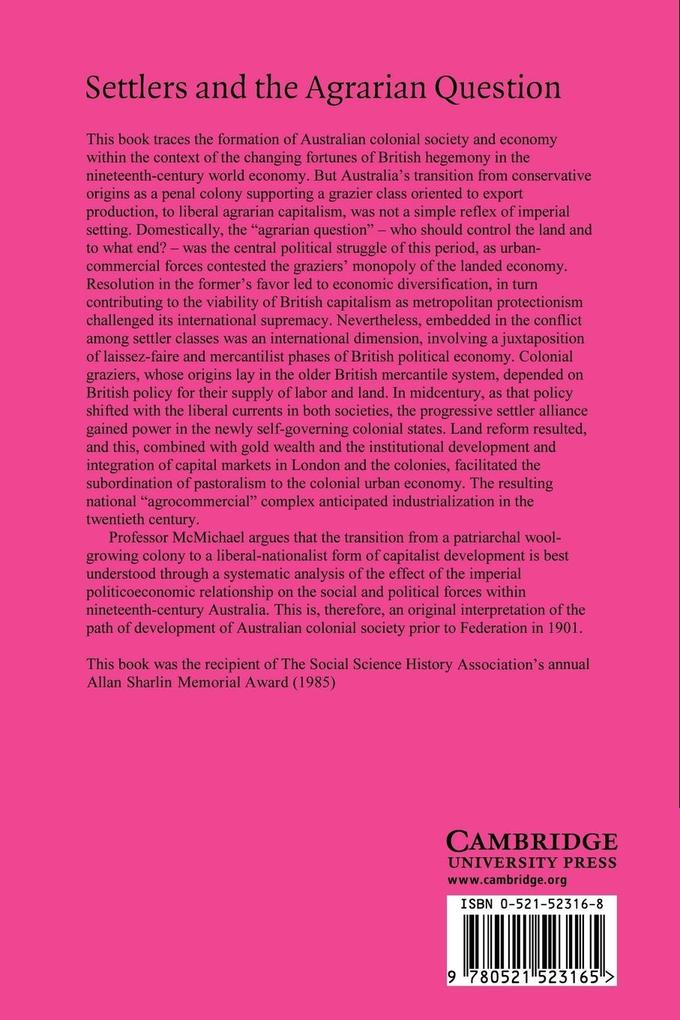
Zustellung: Fr, 27.06. - Di, 01.07.
Versand in 6 Tagen
VersandkostenfreiBestellen & in Filiale abholen:
This book traces the formation of Australian colonial society and economy within the context of the changing fortunes of British hegemony in the nineteenth-century world economy. Australia's transition from conservative origins as a penal colony supporting a grazier class oriented to export production, to liberal agrarian capitalism, was not a simple reflex of imperial setting. Domestically, the 'agrarian question' - who should control the land and to what end? - was the central political struggle of this period, as urban-commercial forces contested the graziers' monopoly, of the landed economy. Embedded in the conflict among settler classes was an international dimension, involving a juxtaposition of laissez-faire and mercantilist phases of British political economy. Professor McMichael argues that the transition from a patriarchal wool-growing colony to a liberal-nationalist form of capitalist development is best understood through a systematic analysis of the effect of the imperial politicoeconomic relationship on the social and political forces within nineteenth-century Australia.
Inhaltsverzeichnis
Map of Australia; List of tables; Preface; 1. The social structure of British hegemony; Part I. The Colonial Economy Enters the World Market (1788-1830): 2. The transition from penal to commercial colony; 3. The world-economic origins of colonial wool growing; Part II. The Squatting Phase of Pastoralism (1830s and 1840s): 4. Squatting and colonial politics; 5. Merchants and growers; 6. Pastoral enterprise in the colonial economy; 7. The conservative character of pastoralism; Part III. Confronting the Agrarian Question (1840-1900): 8. The 1840s crisis and social transition; 9. Foundations of the agrarian question; 10. State formation and transformation of the landed economy; Conclusion; Appendixes; References; Index.
Produktdetails
Erscheinungsdatum
15. Oktober 2003
Sprache
englisch
Seitenanzahl
324
Autor/Autorin
Philip Mcmichael
Verlag/Hersteller
Produktart
kartoniert
Gewicht
528 g
Größe (L/B/H)
229/152/19 mm
ISBN
9780521523165
Entdecken Sie mehr
Bewertungen
0 Bewertungen
Es wurden noch keine Bewertungen abgegeben. Schreiben Sie die erste Bewertung zu "Settlers and the Agrarian Question" und helfen Sie damit anderen bei der Kaufentscheidung.










